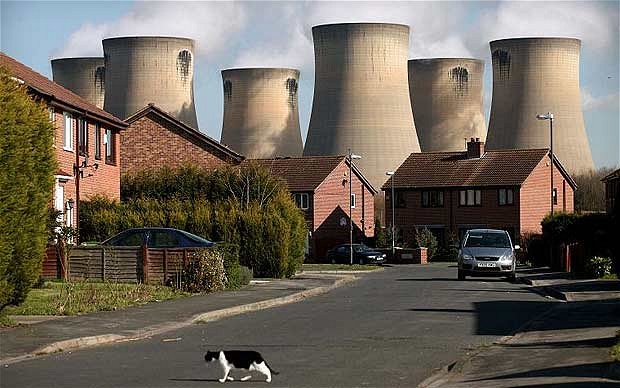The UK has given an average €434.5 million (£368 million) in subsidies to the coal industry each year between 2005 and 2016 new research by the Overseas Development Institute (ODI) has found.
The new report published today by ODI shows that European countries are continuing to support coal despite pledges to phase out the polluting fossil fuel by 2020 (or 2025 in the case of the UK and Ireland).
According to the report, Europe’s 10 largest carbon emitters – responsible for 84 percent of the continent’s emissions – have given €6.3 billion (£5.33 billion) in subsidies to coal each year over the past decade.
The study also found that the UK has a poor track record when it comes to transparency about reporting the country’s subsidies to coal. Britain denies that it gives any subsidies to the fossil fuel industry yet continues to hand out tax breaks year after year.
One of the report’s authors, Shelagh Whitley, head of the climate and energy programme at ODI, said: “European countries need to phase-out coal if they are to meet the Paris climate agreement targets, fight air pollution and support a change to low-carbon energy systems.
“However, as our research shows, governments are continuing to provide lifelines to coal by handing over new subsidies without which the coal industry would not be economically viable.”
Despite the continued subsidies, however, coal is on the decline in Britain. Earlier this month the UK had its first coal-free day since the industrial revolution began.
But as the report notes, none of the coal subsidies in the UK have been put towards helping workers and communities dependent on the industry transition to new jobs or other opportunities.
In fact, only 14 percent of all coal subsidies provided in the 10 European countries examined goes towards support for workers and communities in the transition to clean energy. Of this, €1 billion per year earmarked for such support was actually being diverted back to coal.
“Governments in Europe must stick to their promise to shift to low-carbon and efficient energy systems,” said Whitley, “and focus any remaining subsidies on supporting workers and communities to move away from fossil fuels.”
Photo: Wikimedia commons | CC BY–SA 3.0
Subscribe to our newsletter
Stay up to date with DeSmog news and alerts







